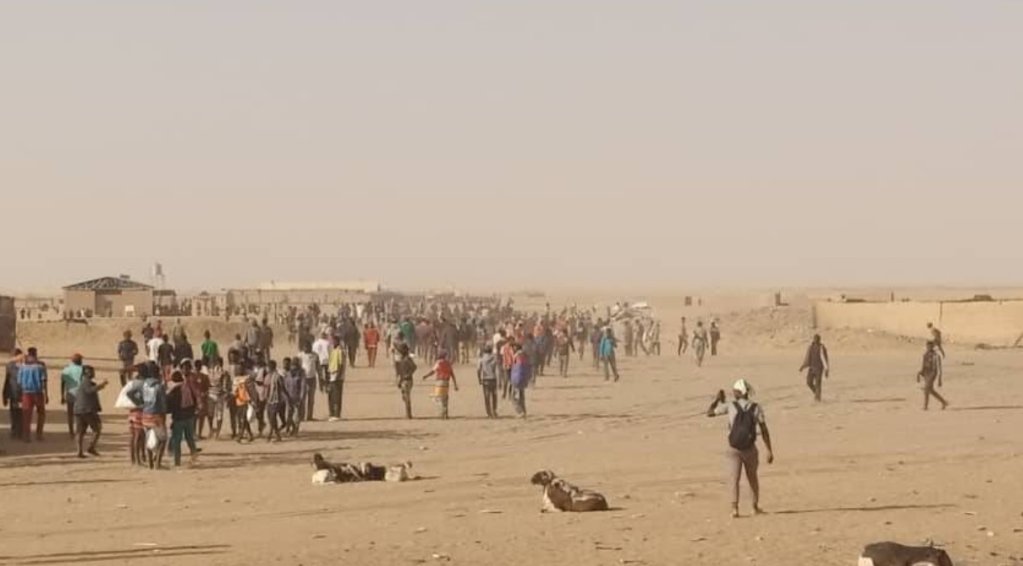Algeria expels nearly 20,000 migrants to Niger amid criticism over inhumane conditions

Algeria expels nearly 20,000 migrants to Niger amid criticism over inhumane conditions
Algeria has expelled nearly 20,000 African migrants to Niger since the start of 2024, drawing sharp criticism from human rights groups over the harsh and often inhumane conditions of the deportations.
According to a report by Nigerien NGO Alarme Phone Sahara, the expulsions include many women and children, and the situation has been widely condemned by local and international media.
From January to mid-August, Algeria deported a staggering 19,798 migrants, including minors, to Niger. Between August 1 and 12 alone, over 2,000 migrants were forced across the border, as reported by Les Échos du Niger.
The deported migrants were reportedly left approximately 15 kilometers from Assamaka, a remote desert town on the Niger-Algeria border, before being taken to transit centers operated by the International Organization for Migration (IOM) and later transferred to other facilities in Arlit or Agadez.
A representative from Alarme Phone Sahara, speaking to international news agencies, described the deportations as “brutal.”
The organization, which assists migrants stranded in the desert between Algeria and Niger, has documented numerous accounts of abuse, violence, and confiscation of personal belongings by Algerian forces.
The expulsions have taken place under conditions that the NGO deems unacceptable, with reports of migrants being left without adequate food, water, or shelter in the harsh desert environment.
Algeria, along with Libya and Tunisia, serves as a major transit point for migrants from sub-Saharan Africa attempting to reach Europe by crossing the Mediterranean Sea.
The ongoing expulsions have exacerbated tensions between Algeria and Niger.
In April, Niger summoned the Algerian ambassador in Niamey to protest the violent nature of the repatriations. Algeria, in turn, summoned the Nigerien ambassador, dismissing Niamey’s allegations as unfounded.
Despite these diplomatic strains, the two countries have shown signs of solidarity in recent months, particularly in response to the severe flooding that has afflicted Niger since early August.
On August 19, Algeria dispatched four planes carrying food and medical aid to assist flood victims in Niger.
Alarme Phone Sahara has extensively documented cases of violence and abuse against migrants by Algerian forces, further highlighting the dire human rights situation at the border.
Despite these reports, Algeria and Niger continue to cooperate on economic and humanitarian projects.
The resumption of activities by Algerian oil company Sonatrach in Niger, alongside humanitarian aid efforts, underscores the commitment of both nations to strengthening their bilateral ties.
As the expulsions continue, the plight of the migrants remains a pressing humanitarian concern, drawing attention to the broader challenges faced by African migrants in their perilous journeys through North Africa in search of a better life in Europe.
About The Author
dailymailafric
I am an avid African news observer, and an active member of Daily Mail Africa.
I’m Passionate about staying informed on diverse topics across the continent,
I actively contribute to publishing on political, economic and cultural developments in Africa.



